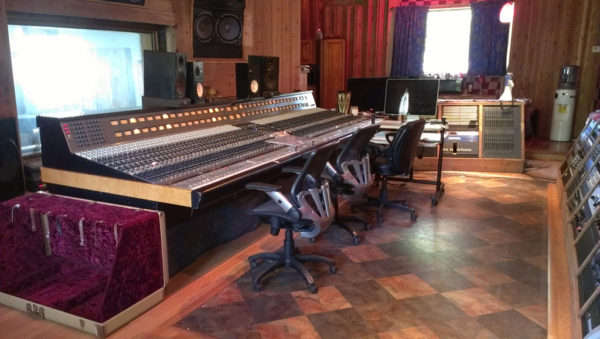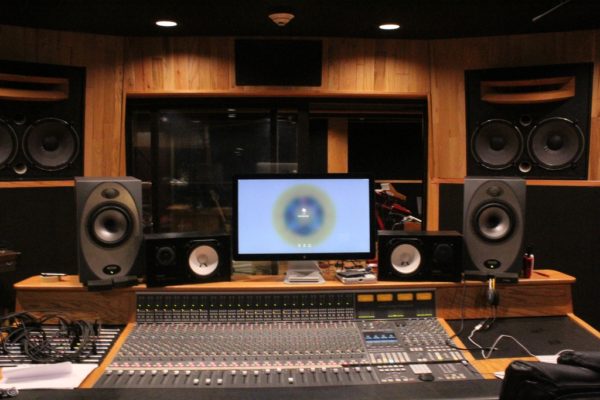As El Paso native Khalid becomes more and more famous, interest in becoming an artist or recording the next superstar is rising. I cannot tell you how to become the next Khalid, but if you want to become an audio engineer (the person that pushes all the buttons and records the artist), as an audio engineering graduate and former intern, I can give you several tips on how to get started.
1. Get educated
The first step to acquiring an internship is getting an education in audio engineering. Most studios (especially the more well-known studios) require some sort of formal education from an accredited college or technical school before even looking at an applicant. Depending on who you know, you might be able to get away with not going to school, but knowledge and skills are still required to be successful.
2. Know the difference between a technical school and an accredited college
 Both types of schools can help educate a person and acquire an internship, but there are differences that are im portant to consider.
Both types of schools can help educate a person and acquire an internship, but there are differences that are im portant to consider.
A technical school will require you to only take audio engineering classes. Once you complete the program, you will receive a certification.
Schools like the Conservatory of Recording Arts and Sciences (CRAS) and the Art Institutes are popular technical schools for audio engineering.
An accredited college will require you to take audio engineering classes along with core classes and electives. In exchange for taking more classes, you will receive a bachelor’s degree or more, if you wish to.
Schools like Full Sail University and the Berklee College of Music offer bachelor’s degrees in recording arts and music production and engineering. Berklee also offers a Master of Music in Music Production, Technology, and Innovation.
I graduated from the Conservatory of Recording Arts and Sciences, a technical school in Tempe, AZ. The program consisted of nine months of curriculum and an internship of at least three months. I received a Master Recording Program II certificate along with several other audio certifications.
3. Choose the right studio/type of internship
 Essentially, there are two types of internships that are available to choose from:
Essentially, there are two types of internships that are available to choose from:
- Recording Studio: If you want to learn about and be a part of recording songs or voice overs, a studio internship might be for you.
- Live Sound: If you want to work with live acts, like music, theater, or even comedy, a live sound internship might be for you. These internships can be done at one specific venue or with a touring act that can potentially travel across the world.
4. Decide where you want to do your internship
Los Angeles, New York, and Nashville are some of the best cities to look for internships because they are home to a large portion of the country’s artists and studios. That does not mean that there are not opportunities elsewhere.
As mentioned in a previous Borderzine article, the El Paso studio scene is increasing, but finding an internship can still be difficult. Whichever school you attend should be able to get your foot in the door, though.
I decided to complete my internship in Nashville, TN at Blackbird Studio. Blackbird Studio is one the biggest facilities in the country with eight individual studios that are able to record anything from a single artist to a full orchestra.
5. Be reliable

Star City Studios in El Paso. Borderzine file photos by Jasmine Garcia-Munoz
Most internships start with a trial period. During this period, an intern will need to prove that they can be trusted by doing consistently well with little tasks. If the studio can trust you with unimportant things, they can begin to trust you with larger, more important things.
As one of the top studios in the nation, Blackbird Studio always had a long waiting list of people seeking to be interns. While the studio wanted every intern to be successful, if they could not trust someone, they had no problem replacing that intern and giving someone else a chance.
6. Be humble
During my internship, many interns came in thinking that they were going to immediately start helping artists record their next hit single. In most cases, a large portion of our internship consisted of cleaning, organizing, and getting food for people. When those interns realized that the internship was not as glamorous as they thought it would be, they quit because they, ‘didn’t go to school just to end up cleaning bathrooms.’
Although the amount of cleaning that I did in my internship might have been a slight abuse of the studio’s position and power, it did show my supervisors how dedicated I was to my internship. It also shows a studio what your work ethic is like and what you might be like as an employee.
However, this first internship led to an opportunity for me to apprentice with a Grammy-Award winning audio engineer. I was one of only three interns selected to apprentice out of the 16 interns at Blackbird Studio. While many of the candidates shared the same skill level, I was told my work ethic and attitude helped me stand out.


